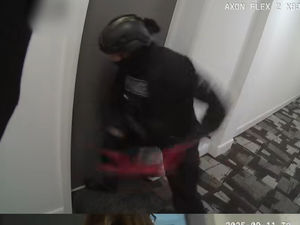Shropshire pet owners warned after poisoning cases
Pet owners in Shropshire have been warned to be on their guard after two cats were poisoned with what is believed to be paracetamol.
Barclay-Moore Partnership Veterinary Surgeons, based in Wem, issued a warning after two cats died within the space of four weeks.
The news comes after the figures have revealed that the number of calls received by the RSPCA in relation to anti-freeze poisoning in Shropshire has risen by 13 incidents since last year.
The RSPCA say that in 2012 they took 14 calls about anti-freeze poisoning in Shropshire, while in 2013 they took six, in 2014 they had six calls and so far this year they have received 19.
In a statement from the vets, it said: "Over the past four weeks we have treated two cat patients for poisoning. Both cases presented as young healthy cats, living within roaming distance of each other, and suddenly becoming very poorly.
"Clinical signs developed rapidly and it became apparent that paracetamol was the prime suspect.
"Unfortunately, both patients died despite some very intensive treatment, as paracetamol poisoning is often fatal.
"Cats are generally very cautious about what they will eat so the possibility of this being a malicious event became highly likely. As such the police have been informed."
The vets added that the area where the cats had been was around the Whixall area near Whitchurch.
Owners were asked to look out for symptoms and take them to be checked by a vet.
Symptoms for dogs include vomiting, exposure to toxin, anorexia, depression and abdominal pain. Cat owners should be on the look out for vomiting, blood in urine, anorexia, and salivation as well as difficulty breathing and swollen facial tissue.
The warning comes less than a week after police revealed a dog in Market Drayton was left in a critical condition after eating bread believed to have been laced with anti-freeze.
The animal was found eating the bread on the street in Waterside Drive and was only stopped from consuming all of it by a passer-by.
Earlier this year six cats were poisoned in Market Drayton after reports that tins of tuna spiked with anti-freeze were left around the area.
Last year, cat owners in the Telford area were placed on alert by RSPCA officers following the deaths of four animals due to suspected anti-freeze or rat poisoning.
Signs of anti-freeze poisoning can be seen anything from 30 minutes after an animal has ingested the chemical, although it can be to two or three days before any signs of kidney failure become visible.
Other symptoms such as vomiting, depression, seizures, difficulty breathing, increased thirst and increased urination.
Under the Animal Welfare Act 2006 the maximum penalty for anyone found guilty of animal poisoning is up to six months imprisonment and/or a £20,000 fine.





